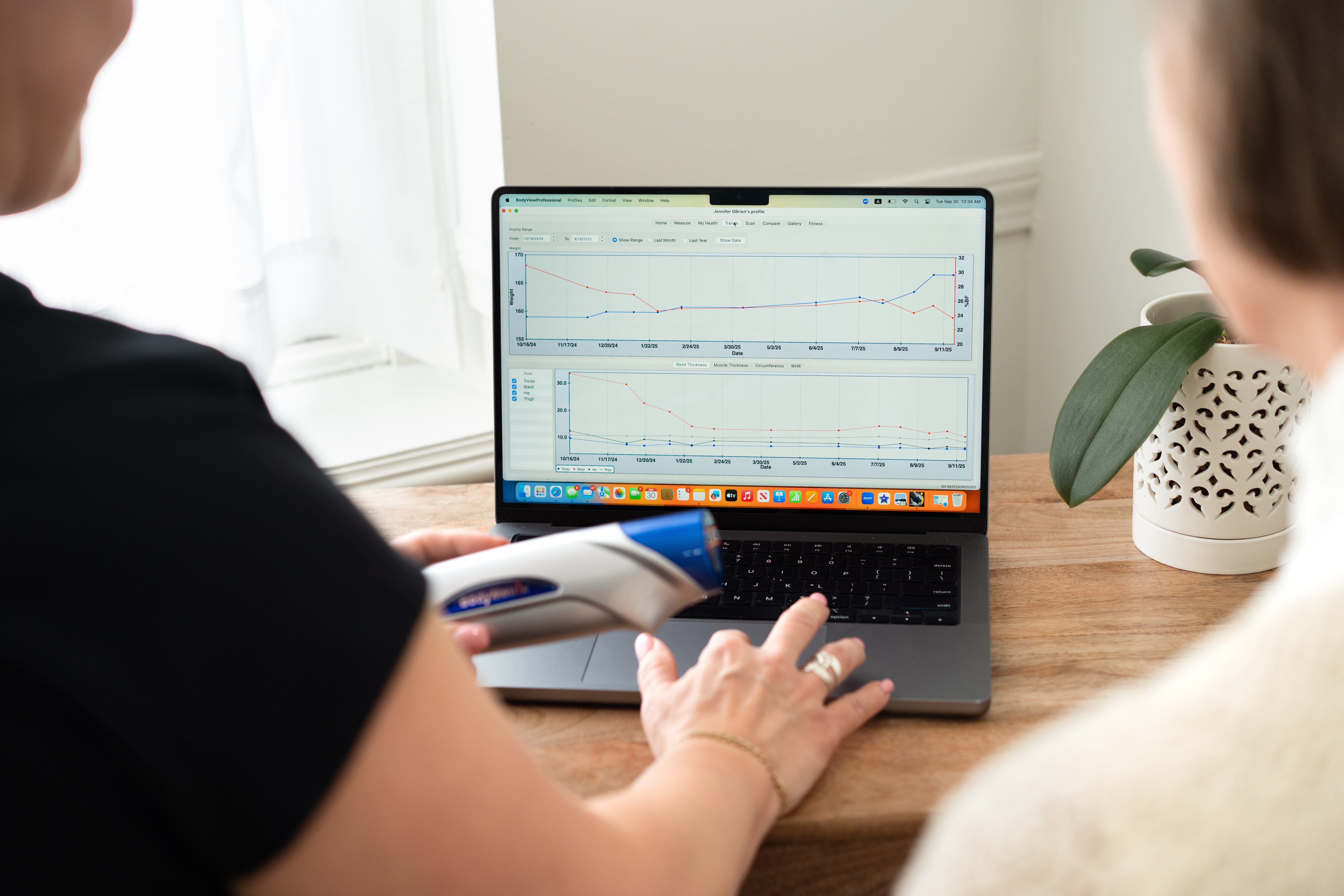



Weight loss injectables (aka Ozempic, Mounjaro, Semaglutide, Tirzepatide, GLP-1’s…) have been around for a long time. About five years ago, they became more widely available to individuals looking to lose weight without the insurance requirement of also having a major disease like diabetes. Providers in my field have been handing out prescriptions like candy for years.
Why didn’t you?
My initial reaction to the widespread use of these drugs hasn’t actually changed much. I felt then and I do now that providers are inappropriately prescribing weight loss injectables to people that are not good candidates and are therefore putting them at risk for side effects and complications, without much evidence of benefit.
What’s the risk?
Weight loss injectables have a lot of evidence supporting their safety, but they are not without risk. One of the most impactful risks in my opinion is loss of muscle mass due to eating less food without doing weight bearing exercise. Especially for women nearing or in perimenopause, losing muscle mass is the worst thing you could do for overall health. The hormonal changes during this period cause loss of muscle mass already, and weight loss injectables can make this even worse.
I worry that statistics around broken bones and mobility problems due to frailty will increase dramatically in women in the next few years as a result of the huge numbers of people taking these drugs.
So why are you offering it now?
Perimenopause also causes weight gain and difficulty with weight loss, leaving women feeling frustrated. For many, this weight gain not only makes it harder to be active and do the things they love, but it’s also a hit to their confidence and self esteem.
I am passionate about helping women feel their best throughout their lifespan so they can each bring their unique and powerful light into the world. I’ve also done some research to figure out how we can mitigate the risks associated with weight loss medications, and settled on some guidelines for individuals who are good candidates for safe treatment.
Who is a good candidate?
If you do not have major health problems due to obesity, you may still be a good candidate for weight loss injectables. I look for people who eat a well balanced diet of mostly whole foods (because they are ingesting enough protein to maintain muscle mass); people who are already physically active on a regular basis (because you won’t lose muscle mass if you’re using it); people who have good sleep habits and sleep adequate hours (because in order for your metabolism to function optimally, you must get good sleep); and people who do not engage in smoking or excess alcohol intake (because, duh).
If this describes you and you’re looking to lose some weight so you can feel your best and maintain your physical activity as you age, set up a consultation for weight loss injectables.
What’s the process?
We’ll have a 30 minute consultation to discuss your lifestyle habits, health history, and make a treatment recommendation. If you don’t have a recent set of labs done, we’ll order them for you (this should be covered by most insurances). The medication will be ordered specifically for you from our pharmacy, and when it comes in you’ll have a 15 minute injectable appointment where we teach you how to inject yourself. Then you’ll take the next three weeks worth of doses home.
You can call or text us any time with questions or concerns. We’ll have one 15 minute injectable appointment monthly to check in and give you the month’s doses.
FAQ
What are the side effects and how common are they? Side effects include nausea, vomiting, diarrhea, dizziness, increased heart rate. In my experience with people who fit the above description of a “good candidate,” these side effects are rare and usually go away within the first two weeks. Rare but serious side effects include inflammation of the pancreas, medullary thyroid cancer, and kidney injury; you should not take these medications if you have a history of these problems.
How long will I be on it? It depends on how much weight you have to lose. But this treatment is a tool to help you lose weight and should be a temporary solution.
What is the cost? We offer semaglutide (Ozempic) starting at $220 per month and tirzepatide (Mounjaro) starting at $290 per month.
Will my face change (will I get "Ozempic-face")? Facial fat will reduce with weight loss due to any cause--medication, surgery, regular old diet and exercise. The gaunt look that some people have is from excessive weight loss (in my opinion) and is easily avoided by tracking progress and adjusting accordingly.


